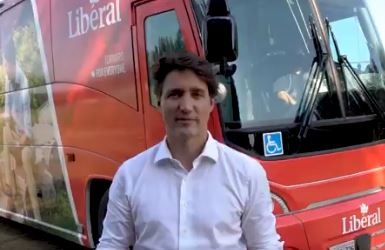Ndp external support? The Liberals are now holding back

TORONTO – The possible Ndp external support to the government is a ‘’no go’’, at least for now. The hypothesis of an organic agreement between the Grit majority and the neo-democrats, which in recent days has been discussed on several occasions, was rejected by the group leader in the Liberal House, who branded the rumors of the negotiation as simple “speculation”.
Mark Holland underlined how the political agenda of the new executive will not differ much from that of the previous government, and this also in the relationship with the other parties present in parliament: yes therefore to collaboration with all political forces but no agreement for any external support.
“I can confirm that right now we are talking to all parties about our common agenda and about the measures we can approve in favor of Canadians. The prime minister himself has entered into a fruitful dialogue with his counterparts in the other parties. I am doing the same. We have a really aggressive agenda to implement in the coming weeks and that’s what we’re focusing on.”
The slowdown comes after several days in which rumors gave as imminent and probable an agreement between the Liberals and the NDP that would have guaranteed the survival of the government led by Justin Trudeau (in the pic above) at least for the first half of the legislature, so two years. But the discussion between the two sides, which actually took place, led to a simple conclusion: the agreement signed for external support would not be agreed by anyone.
On the one hand, the prime minister, who does not enjoy an absolute majority of parliamentarians, will be able to govern for the next twenty-four months without the organic support of the neo-democrats: he already did so in the last legislature, when the government went to seek the support of another political force – NDP or Bloc Quebecois – on every single measure. On the other hand, the agreement would not even benefit the NDP, which in the elections presented itself as an alternative force to the liberals and which in the electoral campaign never hypothesized a possible post-vote alliance with Trudeau.
Erin O’Toole, meanwhile, attacked the possible agreement between center-left forces, pointing out the risks of a “radical government, dangerously skewed to the left,” which would pose a real threat to Canada’s economy and unity. But the conservative leader, in any case, has to deal with internal flaws.
After a long silence O’Toole decided to criticize the dangerously no vax positions of a deputa, Marylin Gladu, who in recent months had made ambiguous statements about vaccines and the origin of Covid-19. But even in this case the Conservative leader continues to have no firm lines.
O’Toole, in fact, strongly defends the decision of a group of his parliamentarians not to show their vaccination status, a choice that will prevent rebel deputies from entering the House of Commons once they resume parliamentary work.
In addition to this, the internal controversy about the methods of the conservative leader towards critical positions within the party is not extinguished. Yesterday the news that O’Toole’s entourage asked the party’s National Council to hand over emails and telephone records regarding the petition launched by some leaders to demand the resignation of the conservative leader.
This move has not pleased many members of the Tory caucus, who have long had doubts about O’Toole’s resilience and who in recent weeks have openly criticized some strategic decisions that led to the defeat at the polls on September 20.



